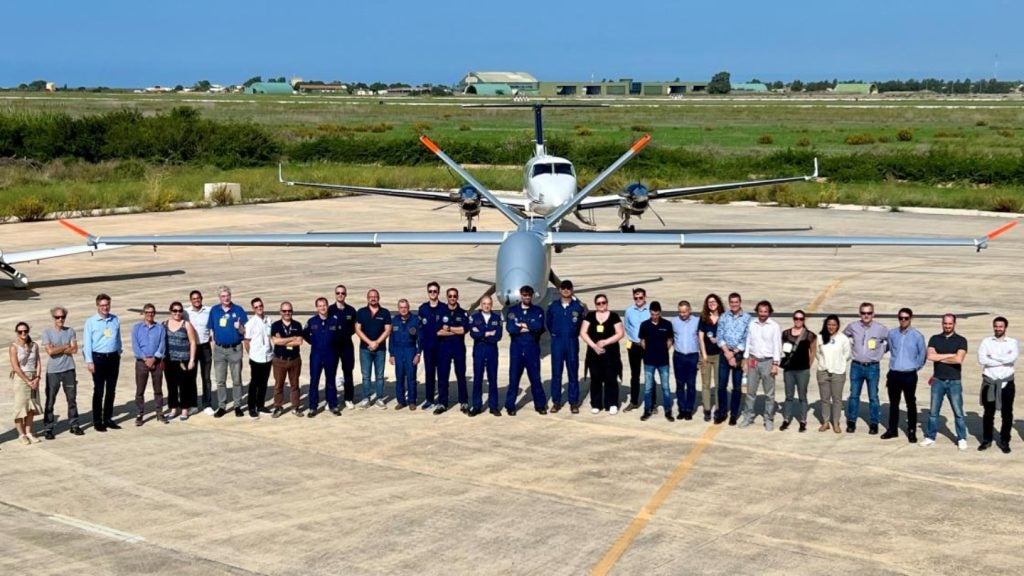Leonardo has successfully concluded a demonstration involving its Falco Xplorer uncrewed aerial system (UAS), aimed to validate the European detect and avoid (DAA) technological demonstrator.
This event, which saw the UAS conduct its final test flight from Trapani Birgi airport in Italy, validated the system’s advanced sensors, digital flight controls, and smart technologies, ensuring the safe integration of large remotely piloted aircraft into European airspace alongside both crewed and uncrewed aircraft.
This is part of the EUDAAS project, funded by the European Defence Industrial Development Programme (EDIDP).
Military and industry representatives from Sweden, Italy, Germany, France, and Spain attended the event.
The EUDAAS project aims to develop and validate a European solution for the safe integration of large military remotely piloted air system (RPAS) into European airspace.
This integration addressed needs in both civil and military sectors, enhancing air traffic safety and efficiency across Europe.
The in-flight demonstration concluded a four-year technological development cycle in Europe under Saab's coordination.
With engineering support from Leonardo's Ronchi dei Legionari team, the EUDAAS project has developed technologies that allow uncrewed aircraft to operate in non-segregated airspace.
The in-flight activities at Trapani confirmed the effectiveness of the technical solutions developed for the DAA demonstrator.
These include advanced sensors, digital flight control algorithms, and smart systems, offering traffic awareness, and collision avoidance, ensuring safe operations in A-G class airspace.
The DAA system, aligned with ICAO standards, combines cooperative and non-cooperative sensors, a central processing computer, and a DAA display for pilot guidance.
Leonardo's Falco Xplorer showcased its DAA capabilities, demonstrating how uncrewed aircraft can be integrated into standard air traffic management systems.
The RPAS boasts more than 24 hours of endurance with a maximum payload of 350kg.
The demonstration's results are expected to enable uncrewed aircraft to serve as reliable assets across Europe.
In Addition, the EUDAAS consortium is advancing to the follow-up project, “EUDAAS2”, set to commence on 1 December 2024 under the EDF 2023 framework.
The Falco Xplorer RPAS has achieved approximately 100 test flights and reached the initial operational capability milestone in its intelligence, surveillance, target acquisition, and reconnaissance configuration.
Full operational capability is expected by 2026.
In 2020, Leonardo completed the first test flight of its Falco Xplorer S/N0001 drone from Trapani Air Force base.









